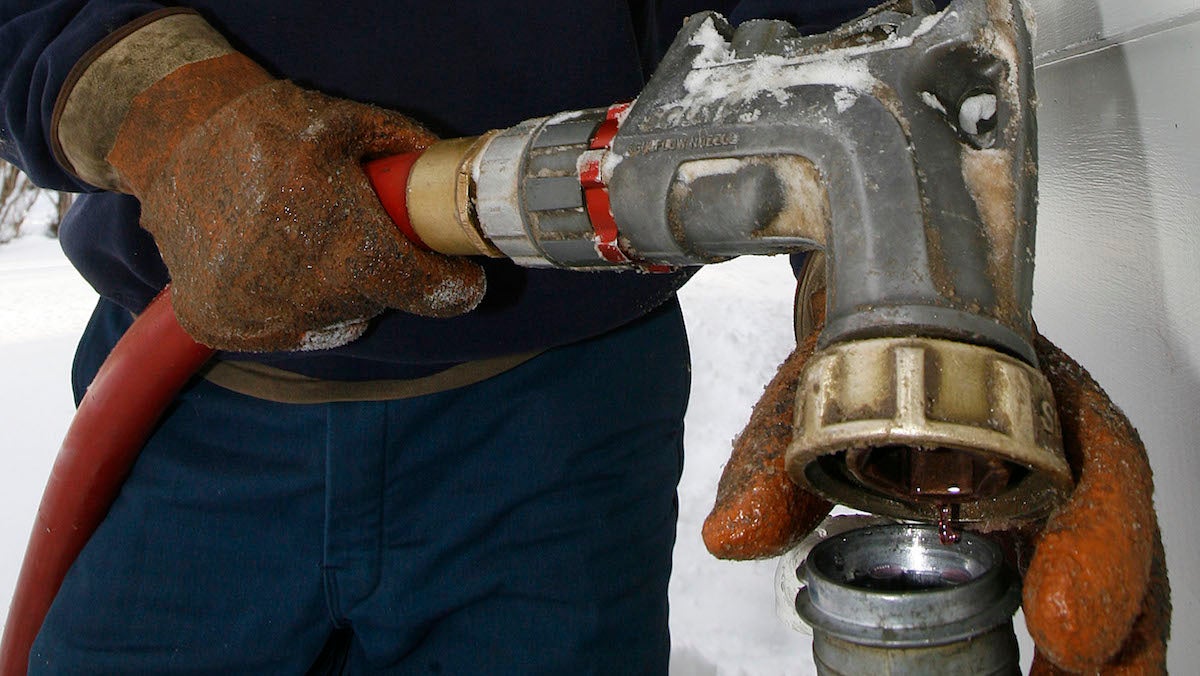Uncertainty in federal funds for heating assistance could affect thousands in Pa.

(AP Photo/Toby Talbot)
Heating bills may be the last thing on your mind as the temperature edges into the 90s, but federal officials are debating how much should be set aside to fund the Low-Income Home Energy Assistance program.
The Trump administration wants to cut funding completely, while Congress is taking steps to preserve the budget of the program known as LIHEAP. Caught in the middle are the state Departments of Human Services, which must update budgets and policies as the debate evolves into policy.
In Pennsylvania, about 345,000 residents rely on LIHEAP, which provides cash grants for electric and gas bills, as well as emergency aid for power shutoffs. LIHEAP also awards grants for home weatherization.
Earlier this summer, in response to Trump’s budget proposal to eliminate LIHEAP, Pennsylvania’s Department of Human Services said it would have to cut the program by 25 percent and shorten the application window by five weeks. The department’s budget proposal, released at the end of June, noted the federal government’s threats to defund the program.
“While the initial budget proposal eliminates funding for LIHEAP, it is likely that the program will continue in FY 2018, considering the popularity of the program and the number of low-income households it assists,” according to the department.
Then, in mid-July, the U.S. House Appropriations Committee introduced a bill that retains LIHEAP funding for next year.
“It’s good news, it’s a step in the right direction — but it’s not law yet,” said Maripat Pileggi, an attorney at Community Legal Service of Philadelphia.
LIHEAP enjoys some bipartisan support in Congress, she said.
“I think a lot of people recognize that it is an effective and very important program for families struggling to keep warm in the winter,” she said. For “people who are struggling to fill their oil tanks in winter, LIHEAP is the only program they can turn to. And, at the end of the process there’s a tank full of oil. There are real effects that are clearly seen.”
And utility companies also like LIHEAP because the grants mean fewer missed payments and expensive shutoffs, Pileggi said.
But that doesn’t mean getting Congress to continue to fund the program is easy.
“LIHEAP is always a little bit of a roller coaster. Because, every year, Congress is looking at what the LIHEAP budget should be for next year,” said Pileggi.
Now the bill that would save the program heads to the Senate.
In the meantime, Pennsylvania’s Department of Human Services is still bracing for possible cuts, although it has reconsidered its decision to drastically shorten the application window. This winter, DHS will accept LIHEAP applications from Nov. 1 through March 23.
WHYY is your source for fact-based, in-depth journalism and information. As a nonprofit organization, we rely on financial support from readers like you. Please give today.




